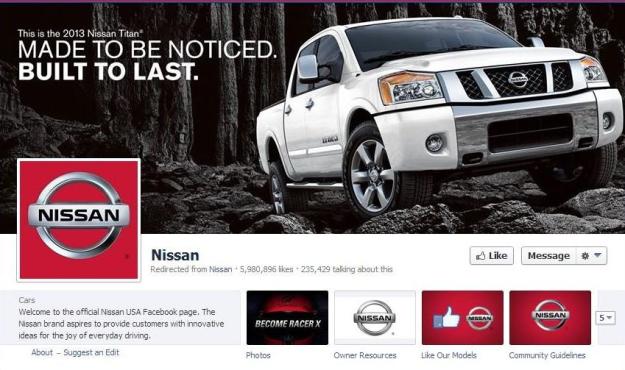 Facebook lost a significant friend in the automotive world this week when Nissan pulled its advertisements from the social media site − and it could prove to be damaging in more ways than one.
Facebook lost a significant friend in the automotive world this week when Nissan pulled its advertisements from the social media site − and it could prove to be damaging in more ways than one.
According to a New York Times report, Nissan joined a dozen or so other smaller companies that have decided to pull ads from Facebook due to offensive content posted on the site glorifying violence against women. Nissan spokesman David Reuter said the carmaker has temporarily stopped advertising on Facebook until the site can guarantee that the company’s ads will not appear on pages with offensive content.
The Times article indicates that Nissan and the other companies were prompted to pull their ads at the urging of a group of female activists, led by Women, Action, and the Media and The Everyday Sexism Project, who sent more than 5,000 emails to Facebook’s advertisers and 60,000 Tweets protesting the ads.
At is issue is the fact that under Facebook’s current system, ads follow users onto whatever pages they visit, which could potentially include posts with offensive content.

Nissan’s own Facebook page, which has nearly 6 million likes, is still up.
In a company blog, Facebook noted that its “systems to identify and remove hate speech have failed to work as effectively as we would like, particularly around issues of gender-based hate.” The social media site also issued a statement saying that it has “no tolerance for hate speech or content that is threatening, or incited violence, and we will not tolerate material deemed to be directly harmful to anyone.”
In addition, Facebook indicated it will work more aggressively to address offensive content, including updating the site’s guidelines and increasing accountability for users whose posts are “cruel or insensitive.”
Still, as a social site that thrives on people sharing everything from baby pictures to political opinions, clamping down on offensive content is more than a notion.
Couple that with the fact that General Motors, one of the world’s largest advertisers, just recently started running ads on Facebook after pulling them last year, and things could even get more troubling for the social media site down the road.
However, it essentially might all boil down to the ongoing question with Facebook – is there anything that can be done to control what people post?
[Image via Business Spectator]


